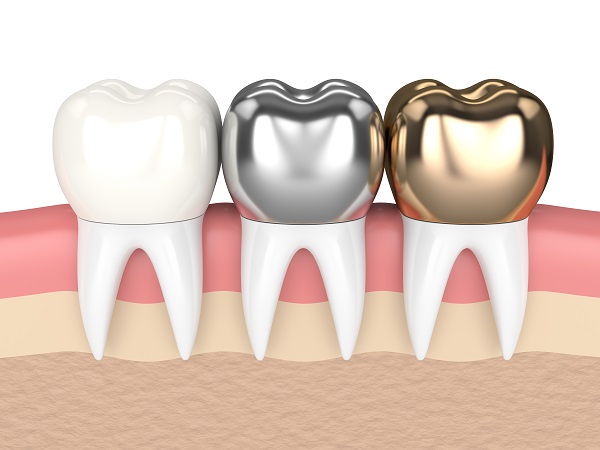FAQs about Getting a Dental Crown

Dental crowns are one of the most popular ways to restore teeth that are in bad shape. They are durable, reliable and most importantly, effective. The procedure itself is relatively straightforward, however, it is a good idea to become familiar with how things work beforehand. This ensures that the patient is prepared and knows what to expect.
Commonly asked questions about dental crown placement
Outlined below are some of the most frequently asked questions about getting a dental crown. Keep reading to find out more!
1. Does dental crown placement hurt?
Most dentists administer a numbing agent before the procedure begins to ensure that any sensations are kept at a minimum. For the most part, dental crowns are not known to cause pain, however, some patients do report that they experience some slight discomfort after the procedure is complete. Typically, this discomfort should subside within a day or so. Any severe pain or discomfort that carries on past two days should be reported to the dentist.
2. How long does it take to get a dental crown?
The dental crown process usually takes two visits that last about an hour in length. During the first appointment, the dentist will clear out the infected tooth and place a temporary dental crown, which is used to protect the tooth for a couple of weeks. During this time period, a dental lab will be responsible for creating a custom-made dental crown for the patient. Once created, the patient can return to their dentist for their permanent dental crown.
3. Are there options for dental crowns?
Yes! There are multiple options for dental crowns. The most common material that crowns are made of is porcelain or ceramic, which are both white in color, thus allowing for a discreet restoration. Some of the other options for dental crowns are metal alloy or gold materials. Both metal materials are strong and very durable, however, they are not discreet.
4. Will a dental crown last forever?
In some cases, yes. Each patient is different, which means their teeth will also vary. The lifespan of a dental crown depends heavily on the patient's oral hygiene and overall care of their mouth. People that eat a lot of tough meats or hard foods are a lot more likely to need a dental crown replacement later on in life. On the flip side, those who take extra care of their teeth may have their original dental crown for the rest of their lives.
5. Are there any special recovery instructions?
Most dentists recommend that patients take it easy after their dental crown placement. It is a good idea to consume soft foods to ensure that the crown does not become irritated or damaged while healing. Additionally, over-the-counter medications can be used for a day or so to remedy discomfort, swelling and inflammation.
Reach out today!
Any questions or concerns regarding dental crown placement should be addressed by a dentist. Reach out today to learn more or to get started!
Request an appointment here: https://www.highlandsdentaldallas.com or call Highlands Family Dentistry at (214) 491-5362 for an appointment in our Dallas office.
Related Posts
Dental crowns are a common restorative solution that protects damaged teeth, improves appearance, and restores proper function. The placement process follows a common step-by-step restoration. Understanding this process can help alleviate any uncertainty you may have before an upcoming appointment and prepare you for what you can expect. Each stage of the dental crown placement…
A dental crown is a type of dental restoration that covers a damaged or weakened tooth and improves its size, shape, health, and appearance. There are certain signs a dentist may look for to determine whether a dental crown is the best form of restoration for a patient or if another restoration may be more…
In most cases, the process of fitting dental crowns takes multiple sessions in the dentist’s chair. This implies an investment of time, effort, and money on your part. It then follows that you want the best out of your investment. So how do you keep the dental crowns in your mouth in excellent condition for…
Dental crowns come in a range of material options, including zirconium and porcelain. These materials vastly increase the aesthetics and reliability of dental crowns as compared to past alternatives. Regardless of the material, most dental crowns look and work well. However, there are some significant variations between these options to be aware of. This article…
